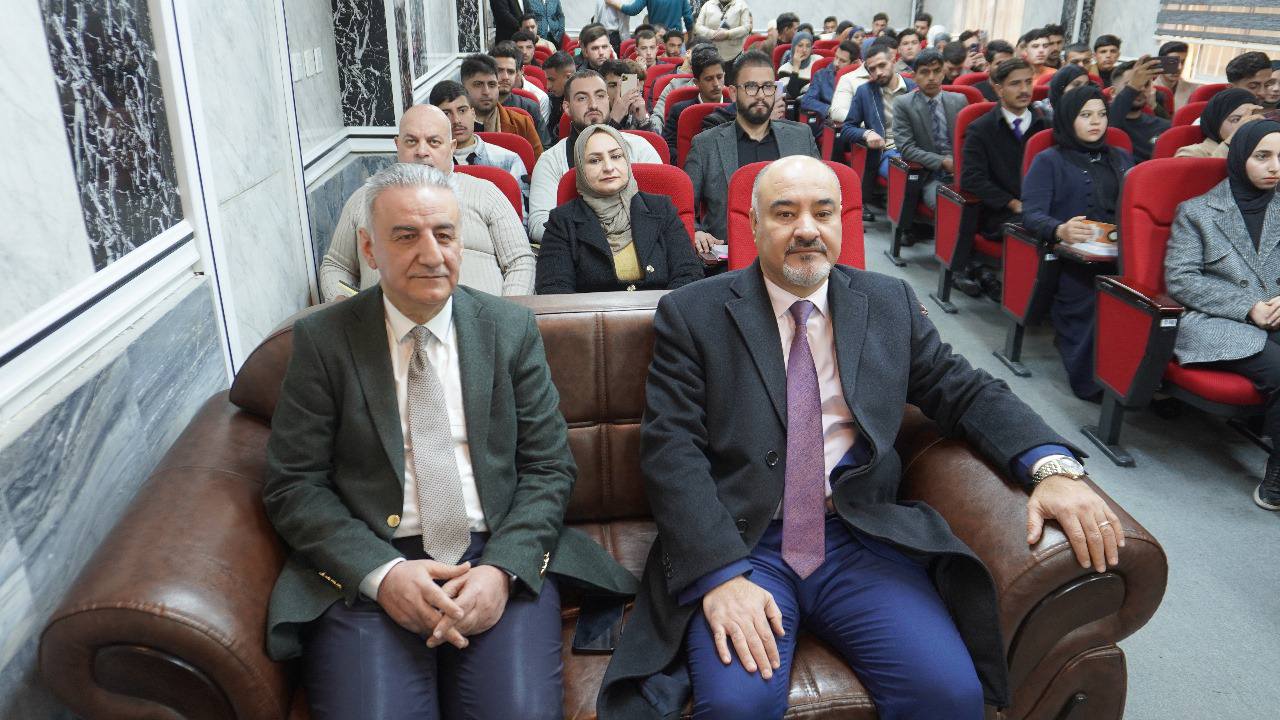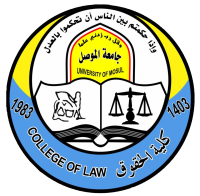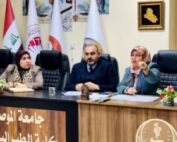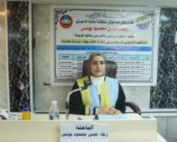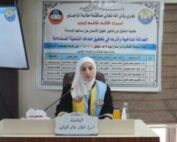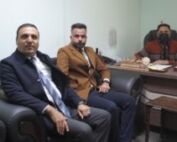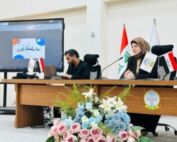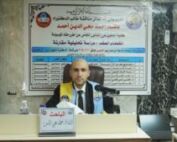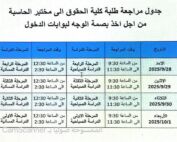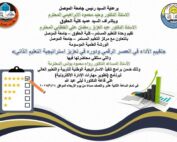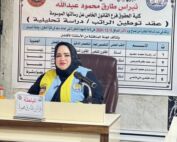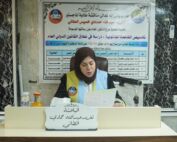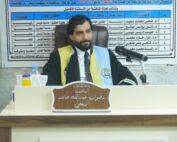16 February، 2025
scientific symposium
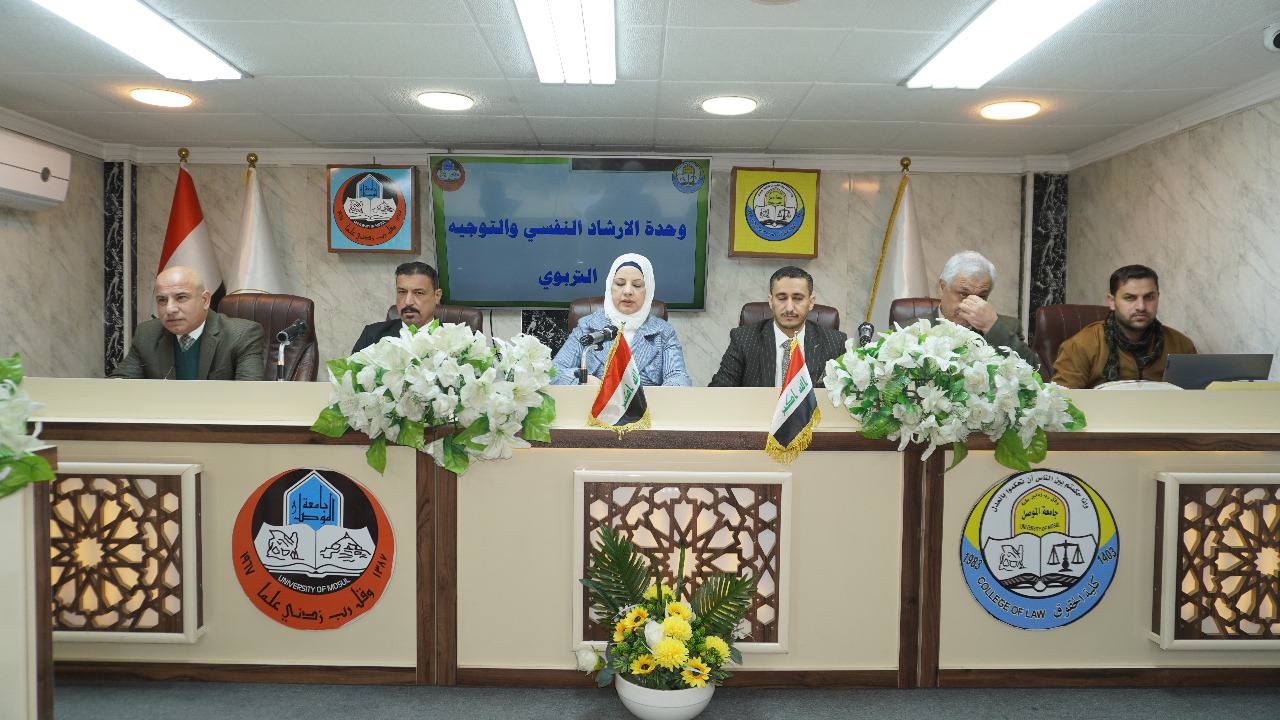
A scientific symposium on drugs and psychotropic substances and their negative effects on society,,,
Under the patronage of Professor Dr. Wahid Mahmoud Al-Ibrahimi, President of the University of Mosul, and under the supervision of Assistant Professor Dr. Wissam Nemat Ibrahim Al-Saadi, Dean of the College of Law, the Psychological Counseling and Educational Guidance Unit in our college held its scientific symposium on Tuesday, February 11, 2025, entitled Drugs and Psychotropic Substances and Their Negative Effects on Society, which witnessed the presentation of Professor Dr. Muhammad Abbas Hamoudi, a research paper in which he discussed the criminal confrontation of drugs, explaining the concept of drugs and psychotropic substances under the provisions of Iraqi legislation and international agreements, explaining the criminal responsibility arising from drugs and psychotropic substances and their types, which may be natural or synthetic, and their effects on public health and the reflection of this on the security and stability of the family and society, with reference to the criminal confrontation that is through preventive and precautionary measures, as well as controls and restrictions on the detection of drugs included in medical prescriptions and the penalties imposed by law on crimes related to drugs and psychotropic substances. The paper also addressed digital and electronic drugs resulting from certain sounds with psychological effects, then Professor Dr. Ahmed Marai Al-Maamari presented his research paper In which he addressed the objective awareness and its impact on immunization against the scourge of drugs, in which he addressed the objectives of Islamic law and its position on drugs and psychotropic substances that have a negative impact on the legal objectives, since Islamic law aims to preserve necessities (religion, soul, mind and offspring). In addition to that, Islamic law is a law with a moral purpose that prohibits the individual from anything that would cause harm to the soul, family and society. Then, Assistant Professor Dr. Muhammad Hussein Muhammad Ali presented his research paper in which he addressed the policy of criminalization and punishment in the current Iraqi Drugs and Psychotropic Substances Law, in which he explained that the reason for criminalization is to protect the interest. In addition, drugs and psychotropic substances constitute a threat to society’s right to health, which is one of its basic pillars, explaining the position of the Iraqi Penal Code and the policy of criminalization and punishments stipulated in the current Drugs and Psychotropic Substances Law. Then, Professor Falah Mahdi Saleh presented his research paper in which he addressed the scientific and educational methods to reduce the phenomenon of drug abuse, pointing out the solidarity responsibility of society, its individuals, institutions and segments, in addition to official institutions, to reduce this dangerous scourge. The destroyer, referring to the types of narcotics and their causes, which are bad companions, the phenomenon of curiosity, the absence of religious restraint, and the exaggeration in providing money without supervision, are the main reasons for the spread of narcotics, referring to the role of the Anti-Narcotics Directorate in the diligent work aimed at protecting society and its individuals from drugs and psychotropic substances that pose a fundamental and direct threat to its security and stability. The symposium witnessed a distinguished presence of the college’s scientific and administrative staff and its students, who directed many questions and inquiries about the topic of the symposium, which were answered in detail by those in charge of it. In conclusion, the researchers, the head and members of the symposium’s preparatory committee were honored with certificates of appreciation in appreciation of their efforts in holding this activity, which comes within a series of scientific, research, cultural and student activities for our college during the current academic year 2024-2025.
